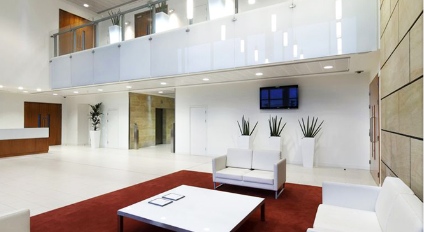You may have read Brian MacMahon’s thoughtful expertorial, “The Office Of The Future Is The Sharing Economy“. He details the slow cultural change of officing over the decades, and looks ahead to how current trends are reworking office space as we know it into something altogether more different, more exciting, and more beneficial for workers.
One such change we’re seeing is the rapid rise of coworking, a topic we seem to be covering more and more here on OfficingToday – and for good reason.
There are many reasons why coworking is growing. It’s an affordable workplace solution, it’s an inspirational escape for home-workers, it’s a convenient fit for the growing army of mobile workers, and more. In short, coworking is at the right place at the right time – and with rapid year-on-year growth, it’s certainly showing no signs of slowing down.
Card-based platforms
With that growth comes a knock-on uplift in associated coworking services and suppliers. One such associated service is membership and card-based office solutions, which give users access to a wide range of space.
Typically these services allow users to touchdown, or swipe in and out, of participating locations in a geographical area. You’re probably well aware of the key players – such as LiquidSpace and DeskWanted. Another big name is Your Workspaces, formerly DayOfficeCard, which launched in 2011 with the “first program to allow independent business centres to offer fully furnished and equipped offices by the day.” Within 12 months they had expanded from UK-wide into the U.S. and Canada, and they’re currently growing at a rate of one new country every week.
In the UK, NearDesk offers a card-based platform which gives workspace users and coworkers access to flexible workspace in London, and in a growing network of locations across the UK. It enables mobile workers to swipe in and out of participating workspace locations on a pay-as-you-go basis. Users touch their card to a monitor at reception and ‘touch out’ again when they leave, which keeps track of their usage.
LooseCubes was another popular platform, but although it started with high expectations it shut suddenly last year, with commentators blaming its financial model and invite-only approach as the root cause of its demise. So while coworking and its associated services are growing fast, this market is not without its risks.
However, as we have already seen with the growth of YourWorkspaces, NearDesk and others, there appears to be plenty of success stories. Of course this is good news for the companies concerned, but it’s also a positive move for the business centre industry and for flexible working market as a whole.
Why should business centres care?
For the most part, these platforms aren’t limited to a specific type or style of workspace. For the benefit of geographical spread, they offer workspace in all sorts of different workplaces – business centres, coworking spaces, sub-lets, conventional space, meeting rooms, lounges, and more. For business centre operators, this growing niche offers various benefits:
- Sell empty space: By becoming a participating member of a card-based solution, business centres can hire out empty desks, meeting space and even communal areas by the hour. If the space is sitting empty, you might as well fill it.
- Access to new clients: It’s notoriously challenging for business centres to be ‘accepted’ into the coworking mould. With most card-based platforms, users have access to touchdown space across a wide range of space, including that supplied by business centres, coworking spaces, conventional space, and more. This places business centres on an even footing and exposes their services to new client groups, such as coworkers and home-workers.
- Marketing spread: Joining a platform like SpaceDadi, NearDesk or YourWorkspaces instantly pushes your business centre out to a wider audience. The marketing benefits are huge – and typically represent much higher value for money than your own marketing budget would allow.
- Upsell opportunities: Gaining a little extra footfall through participation schemes like this could lead to upsell opportunities, namely, upgrading your ‘touchdown’ clients into serviced or managed space later down the line.
Businesses (and business centres) can no longer ignore flexible working, and the cost-saving advantages alone are encouraging more firms to consider new ways of ‘smart working’. Whether or not business centres are onboard with this style of working, experts believe the coworking model will become part of the mainstream sooner or later. Initiatives such as NearDesk are making it easier for businesses to provide a more flexible working basis for staff, and for business centres to get onboard.
As a result, it is helping our industry to evolve. As Brian MacMahon puts it, “Our joint desire is to move the industry, which has not changed in 80 years, into a new world where people can book a workspace as easily as they can order a coffee in Starbucks. Welcome to the future.”
Are you using membership or card-based solutions to sell your empty space? Which ones do you swear by? Let us know by leaving a comment below.
Thanks to www.yourworkspaces.com for the image.



 Dr. Gleb Tsipursky – The Office Whisperer
Dr. Gleb Tsipursky – The Office Whisperer Nirit Cohen – WorkFutures
Nirit Cohen – WorkFutures Angela Howard – Culture Expert
Angela Howard – Culture Expert Drew Jones – Design & Innovation
Drew Jones – Design & Innovation Jonathan Price – CRE & Flex Expert
Jonathan Price – CRE & Flex Expert











